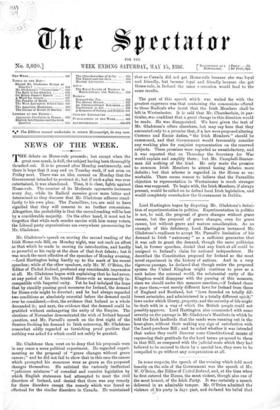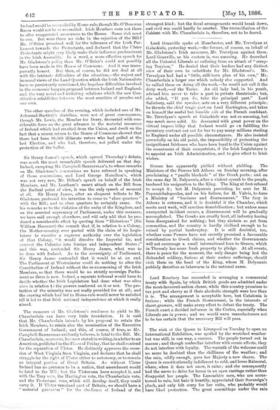In some respects, the speech of the evening which told
most heavily on the side of the Government was the speech of Mr. W. O'Brien, the Editor of United Ireland, and, at the time when he first entered the House, the most violent, though also one of the most honest, of the Irish Party. It was certainly a speech delivered in an admirable temper. Mr. O'Brien admitted the violence of his party in days past, and declared his belief that
Ireland would be reconciled by Home-rule, though Mr. O'Donovan R0388 would not be so reconciled. Irish Members were not there to offer exaggerated assurances to the House. Some risk must be r•un. But were there no risks in the rejection of the' Bill P Mr. O'Brien promised well for the tolerance of the Irish Par- liament towards the Protestants, and declared that the Ulster Protestants might very likely make their influence predominant in the Irish Assembly. In a word, a more effective speech for Mr. Gladstone's policy than Mr. O'Brien's could not possibly have been made in the Howe of Commons. And it was trans- parently honest. But then, of course, he did not deal at all with the intrinsic difficulties of the situation,—the unjust and immoral views of the Land Question which the Irish Nationalists have so persistently sanctioned, the hopeless difficulties involved in the economic bargain proposed between Ireland and England, and the very novel and irritating relations which the new Con- stitution establishes between the most sensitive of peoples and our own.



































